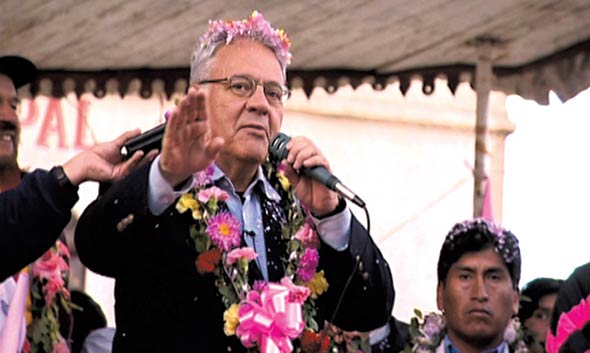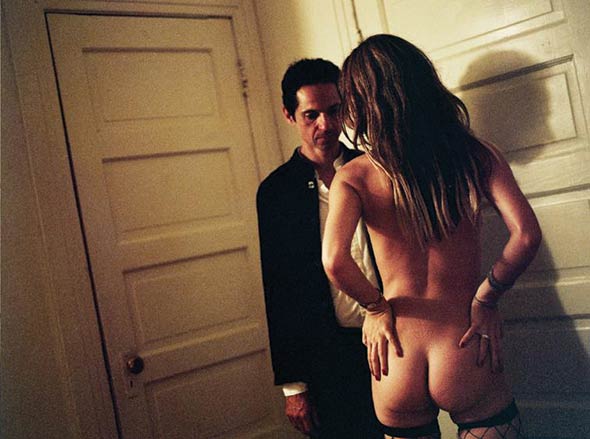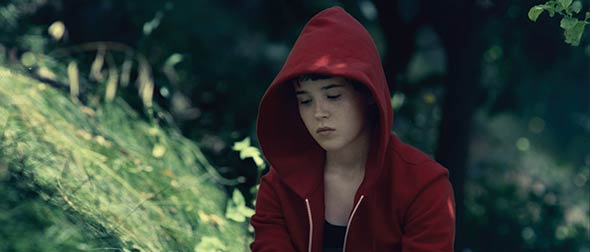
Our Brand Is Crisis
Directed by Rachel Boynton
Plenty of documentaries have captured the do-or-die tactics of high-pressure political campaigns, yet something about Our Brand Is Crisis – which highlights the exporting of our American political machine to Bolivia – is more jarring and alarming than its homebound counterparts. Perhaps it has something to do with seeing the familiar machinery in a more revealing setting, but by film’s end, the most damning conclusion is unmistakable: the same people who have mucked up our democracy are now sinking their teeth into other democracies that don’t stand a fighting chance. The key to telling this story is access, and somehow director Rachel Boynton has been given remarkable freedom to tell the behind-the-scenes story of Gonzalo Sánchez de Lozada’s turbulent 2002 re-election campaign as orchestrated by a handful of prominent American political strategists including James Carville, Ted Devine and Jeremy Rosner. But as Sánchez de Lozada is methodically distilled and molded into a brand that is then mass-marketed and focus-grouped by these shrewd outsiders, his campaign becomes more about the political race and less about the people’s issues, more a game of polls and points and less a race about the state of the nation. And as tensions ripple across the country, Boynton contrasts the inner meetings of the campaign with the realities of the outside world – realities Carville and company have lost sight of. Haunting as a film that uncannily breaks down what’s wrong with the American political system, and sobering in the way Crisis shows the parallels between a fiercely divided Bolivian public and the deep divisions of today’s blue state/red state America, it also holds an eerie irony in this age of the war on terror. Just as President Bush reiterates that “freedom is on the march,” Our Brand Is Crisis makes one wonder if this brand of freedom is worth spreading. Steven Snyder

I am a Sex Addict
Directed by Caveh Zahedi
I was, am, am not, or never was a sex addict. Who decides? Caveh Zahedi decided. And he is telling the world in his new film, I Am A Sex Addict. He reveals how it started, what happened, what changed, and how it is now. Standard addiction fare, right? Just as mushrooms differ from cocaine, this film differs from the typical addict-goes-to-heaven-or-hell story. The story is told in Zahedi’s personal, self-conscious way and the result is engaging, inviting, and humorous. Zahedi draws on his personal experiences as straight and direct as he can, striving for “radical honesty.” The result could be emotionally devastating, but Zahedi draws on comedy, from start to finish. Several ingredients come together to make this film one to watch. First, Zahedi is a self-deprecating man, skilled at poking fun at himself for our amusement. Second, taboo subjects are the substance of comedy and sex addiction makes for miles of fertile, unplowed fields. Third, truth is not only stranger than fiction, it is funnier. Wit, taboo, and reality swing together in a mix anyone old enough to rent an x-rated movie can enjoy. Decided or not. Detect a bias? A hidden agenda? The hard sell? OK, I confess: this movie smells like a rose but peels like an onion. Layers and layers and layers. Bewarned: this could very well be your first hit of a new habit with far reaching consequences, especially if you already have such proclivities. Zahedi’s a trick but he’s also playing one. And this is the existential paradox that turns out both the exhibitionist and the voyeur. All of a sudden, what you are thinking about the movie might be a reflection of what you are thinking about yourself. Or not. Are you a sex addict? David Osborn

Hard Candy
Directed by David Slade
The cat-and-mouse thriller Hard Candy opens in a coffee shop where Hayley, a sweet and naive teenage girl, has arranged to meet Jeff, a 30-something fashion photographer she met over the Internet. What we quickly realize is that Hayley has stumbled into a potentially dangerous situation that she isn’t savvy enough to recognize. The two flirt and tease… and we begin to feel nervous for the poor girl. And then the two go back to Jeff’s house, where Hayley begins drinking and launches into an impromptu striptease, and we see that the absolute worst has happened – the young girl has attracted the attention of a vicious sexual predator. But everything is not as it seems in David Slade’s feature film directorial debut: the ultimate “victim” here isn’t who you’d expect. Slade’s film was a tremendous hit at Sundance in 2005, where it played in the Park City at Midnight category and got picked up by Lions Gate for an estimated $4 million. Festival audiences also responded enthusiastically to the stylish film, and it quickly became one of the year’s most talked about titles in Park City. Certainly the cinematography and set design should be singled out, as both were interesting and imaginative – particularly so when you consider that the film was shot in only one primary location: Jeff’s house. The thing that sets Hard Candy apart, though, and marks it as one of the most unforgettable thrillers in recent memory is the tremendous performance by two lead actors: Ellen Page as Hayley and Patrick Wilson as Jeff. Page in particular turns in the performance of her career. Her portrayal of a teenage victim-turned-tormentor is remarkably mature and is sure to shock audiences and twist every expectation. Anyone who needs million-dollar explosions and endless CGI to remain entertained should definitely stay away from this wonderfully nuanced and nail-biting thriller. Andrew Rodgers

